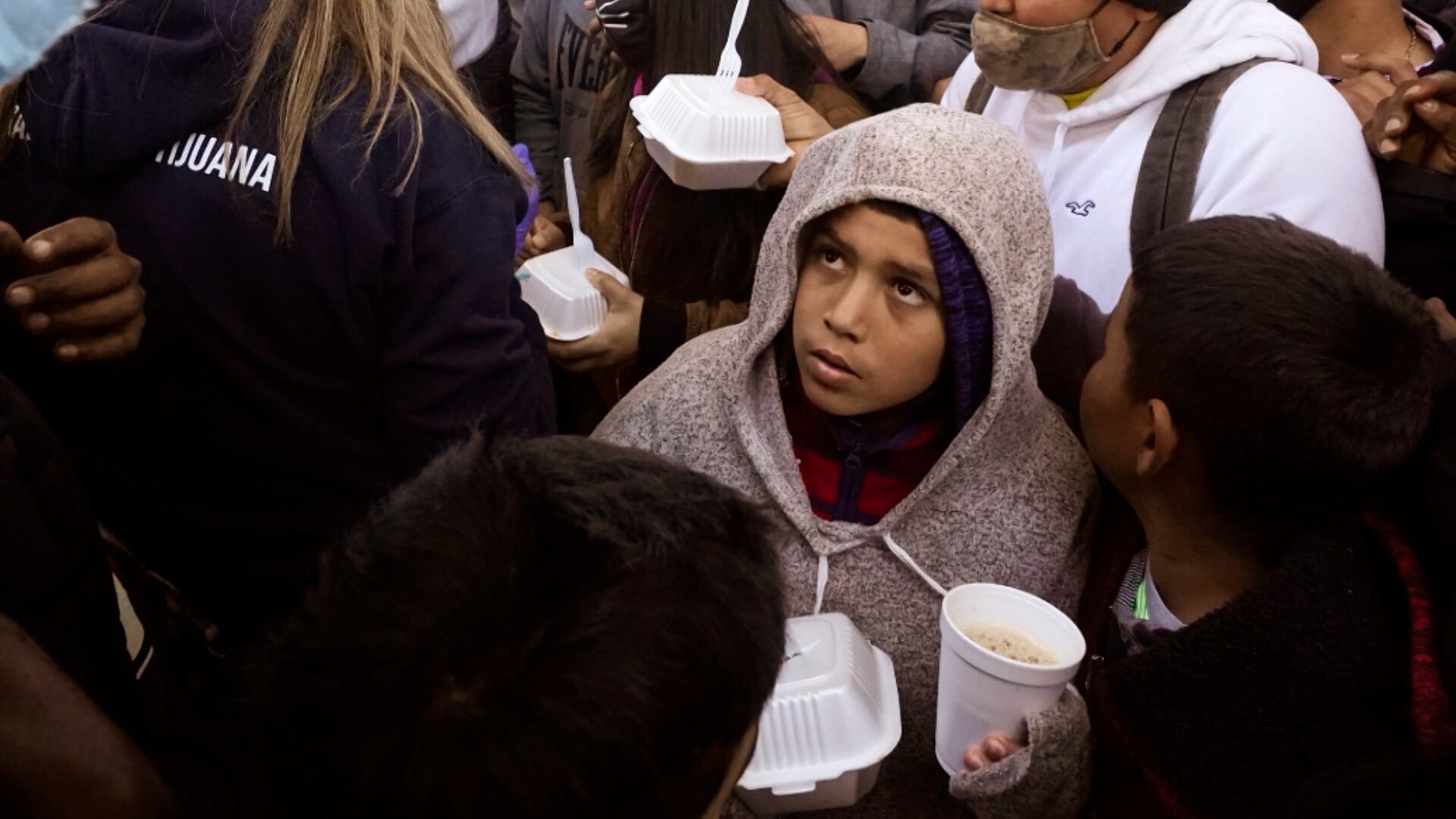By Adam Schreck and Cara Anna
A missile hit a crowded train station in eastern Ukraine that was an evacuation point for civilians, killing dozens of people Friday, Ukrainian authorities said while warning they expected to find more evidence of possible war crimes in parts of the country previously held by Russian troops.
Ukrainian President Volodymyr Zelenskyy said thousands of people were waiting to board trains at the station when the missile struck. Photos from the scene showed bodies covered with tarps on the ground and the remannts of a rocket with the words “For the children” painted on it in Russian.
The Russian Defense Ministry denied attacking the station in Kramatorsk, a city in the eastern Donetsk region, but Zelenskyy and other Ukrainian leaders accused Russia's military of deliberately targeting a location where only civilians were assembled.
“The inhuman Russians are not changing their methods. Without the strength or courage to stand up to us on the battlefield, they are cynically destroying the civilian population,” the president said on social media. “This is an evil without limits. And if it is not punished, then it will never stop.”
The regional governor of Donetsk, Pavlo Kyrylenko, said that 39 people were killed and 87 wounded. The office of Ukraine’s prosecutor-general said about 4,000 civilians were in and around the station, most of them women and children heeding calls to leave the area before Russia launches a full-scale offensive.
“The people just wanted to get away for evacuation,” Prosecutor General Iryna Venediktova said while visiting Bucha, a town north of Kyiv, Ukraine's capital, where journalists and returning Ukrainians discovered scores of bodies on streets and in mass graves after Russian troops withdrew.
Venediktova spoke as workers pulled corpses from a mass grave near a church under spitting rain. Black body bags were laid out in rows in the mud. None of the dead were Russians, she said. Most of them had been shot. The prosecutor general's office is investigating the deaths, and other mass casualites involving civilians, as possible war crimes.
After failing to take Ukraine’s capital and withdrawing from northern Ukraine, Russia has shifted its focus to the Donbas, a mostly Russian-speaking, industrial region in eastern Ukraine where Moscow-backed rebels have been fighting Ukrainian forces for eight years and control some areas. The train station is located in government-controlled territory.
Ukrainian officials warned residents this week to leave as soon as possible for safer parts of the country and said they and Russia had agreed to establish multiple evacuation routes in the east.
One analyst said only Russia would have a reason to attack civilian railway infrastructure in the Donbas, and that Ukraine would not deliberately kill its own civilians in “a war of survival.”
“The Ukrainian military is desperately trying to reinforce units in the area … and the railway stations in that area in Ukrainian-held territory are critical for movement of equipment and people,” said Justin Bronk, a research fellow at the Royal United Services Institute in London.
Elsewhere in the Donbas, the governor of Luhansk, Serhiy Haidai, said Russia was concentrating equipment and troops and increasing shelling and bombing to aid their advance.
“We sense the end of preparations for that massive breakthrough, for that great battle which will happen here around us, in the Luhansk and Donetsk regions,” he said in a televised address.
In his nightly video address, Zelenskyy said horrors worse than the ones in Bucha already had surfaced in Borodyanka, another settlement outside the capital.
“And what will happen when the world learns the whole truth about what the Russian troops did in Mariupol?” Zelenskyy said late Thursday, referring to the besieged southern port that has seen some of the greatest suffering during Russia's invasion. “There, on every street, is what the world saw in Bucha and other towns in the Kyiv region....The same cruelty. The same terrible crimes.”
The prosecutor general also expressed concern about the death toll in Borodyanka, where the process of retrieving bodies from shelled and collapsed buildings has just begun. Twenty-six bodies were found Thursday from the ruins of just two buildings, Venediktova said.
“We don’t know what’s under these houses,” she said, estimating it could take two weeks to find out.
Spurred by reports that Russian forces committed atrocities in areas surrounding the capital, NATO nations agreed to increase their supply of arms after Ukraine's foreign minister pleaded for weapons from the alliance and other sympathetic countries to help face down an expected offensive in the east.
Ukrainian and several Western leaders have blamed the massacres on Moscow’s troops. The weekly magazine Der Spiegel reported Germany’s foreign intelligence agency intercepted radio messages among Russian soldiers discussing killings of civilians. Russia has falsely claimed that the scenes in Bucha were staged.
In a rare acknowledgment of the war's cost to Russia, Kremlin spokesman Dmitry Peskov acknowledged to British broadcaster Sky News on Thursday that the country has suffered significant military causalities, calling it a “tragedy.”
On Friday he told reporters that his reference to troop losses was based on the most recent Russian Defense Ministry numbers, which reported March 25 that 1,351 Russian troops had been killed in Ukraine. NATO has estimated Russia's casualties to be several times higher.
In anticipation of intensified attacks by Russian forces, hundreds of Ukrainians fled villages in the Mykolaiv and Kherson regions that were either under attack or occupied.
Marina Morozova and her husband fled from Kherson, the first major city to fall to the Russians.
“They are waiting for a big battle. We saw shells that did not explode. It was horrifying,” she said.
Morozova, 69, said only Russian television and radio was available. The Russians handed out humanitarian aid, she said, and filmed the distribution.also
The United Nations estimates that more than 4.3 million people have fled Ukraine since the war began and that more than 12 million people are stranded in areas under attack.
On Thursday, a day after Russian forces began shelling their village in the southern Mykolaiv region, Sergei Dubovienko, 52, drove north in his small blue Lada with his wife and mother-in-law to Bashtanka, where they sought shelter in a church.
“They started destroying the houses and everything” in Pavlo-Marianovka, he said. “Then the tanks appeared from the forest. We thought that in the morning there would be shelling again, so I decided to leave.”
Two top European Union officials and the prime minister of Slovakia traveled to Kyiv on Friday, looking to shore up the EU’s support for Ukraine. Prime Minister Eduard Heger said he, EU Commission President Ursula von der Leyen and EU foreign policy chief Josep Borrell brought trade and humanitarian aid proposals for Zelenskyy and his government.
Heger also announced that his country has donated its Soviet-era S-300 air defense system to Ukraine.
Zelenskyy had mentioned the S-300s by name when he spoke to U.S. lawmakers by video in March, appealing for anti-air systems that would allow Ukraine to “close the skies” to Russian warplanes and missiles.
Western nations have stepped up sanctions against Russia following the reports of atrocities near Kyiv. A day after the United States imposed sanctions on President Vladimir Putin's two adult daughters, the European Union and Britain followed suit Friday.
The U.S. Congress voted to suspend normal trade relations with Russia and ban the importation of its oil, while the EU approved an embargo on coal imports. The U.N. General Assembly, meanwhile, voted to suspend Russia from the world organization’s leading human rights body.
U.S. President Joe Biden said the U.N. vote demonstrated how “Putin’s war has made Russia an international pariah.”
“The signs of people being raped, tortured, executed — in some cases having their bodies desecrated — are an outrage to our common humanity,” Biden said.
___
Anna reported from Bucha, Ukraine. Andrea Rosa in Chernihiv, Ukraine, and Associated Press journalists around the world contributed to this report.
Updated on April 8, 2022, at 10:48 a.m. ET with the latest death toll, comment from the British defense minister.












